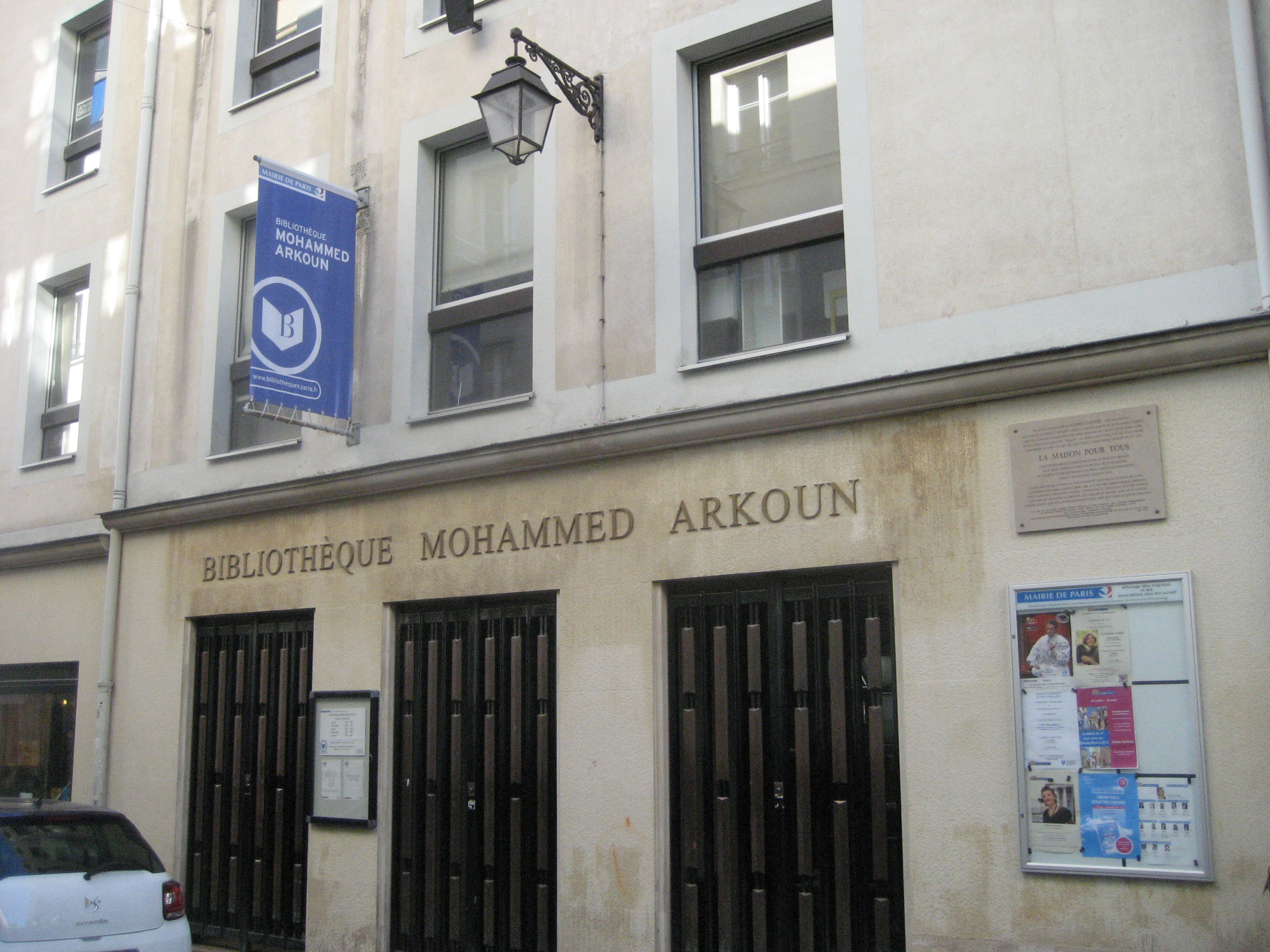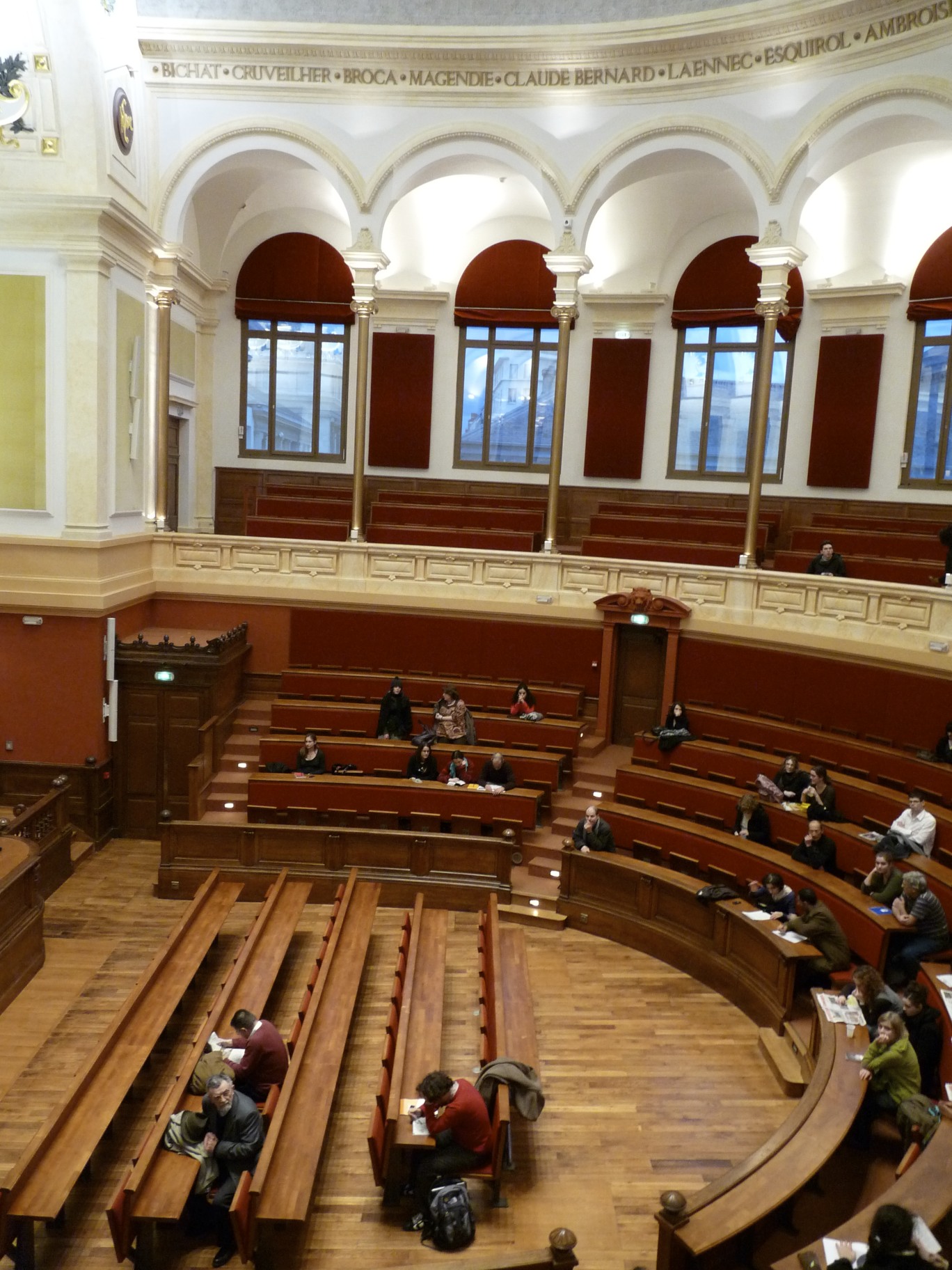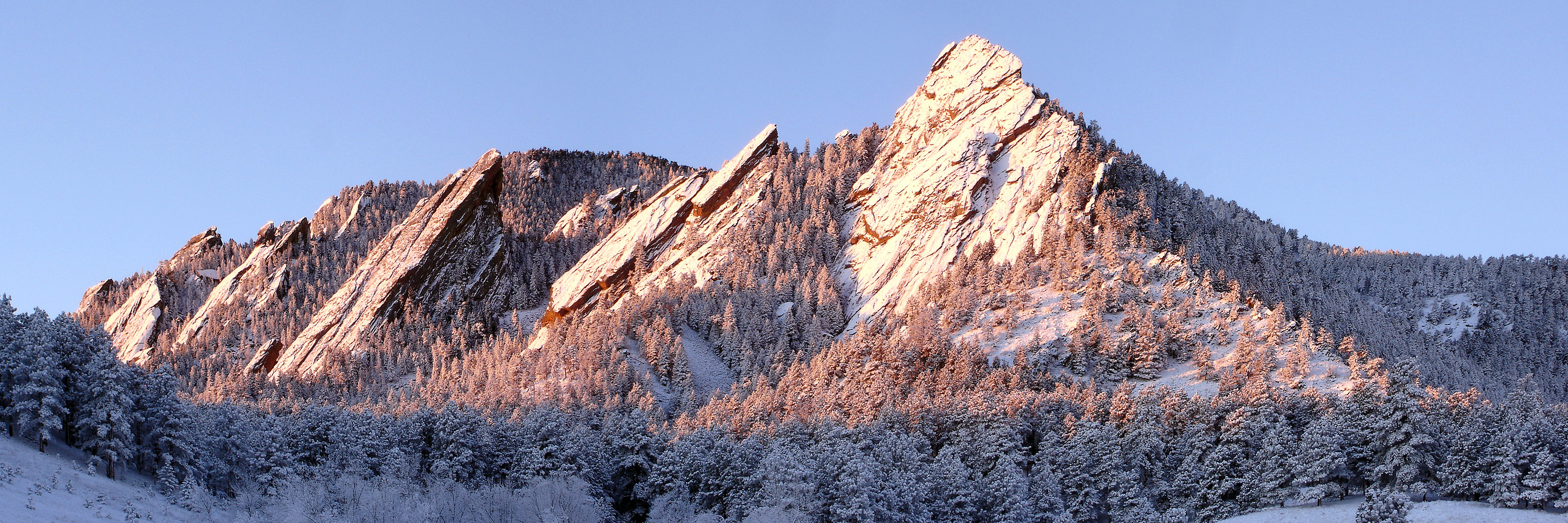|
Mohamed Arkoun
Mohammed Arkoun ( ar, محمد أركون; 1 February 1928 – 14 September 2010) was an Algerian scholar and thinker. He was considered to have been one of the most influential secular scholars in Islamic studies contributing to contemporary intellectual Islamic reform. In a career of more than 30 years, he had been a critic of the tensions embedded in his field of study, advocating Islamic modernism, secularism, and humanism. During his academic career, he wrote his numerous books mostly in French, and occasionally in English and Arabic. Academic career Arkoun was born in 1928 in Taourirt Mimoun, a Berber village in Great Kabylia in northern Algeria. His family was traditional, religious and relatively poor. His father was a shopkeeper in Ain al-Arba'a, a wealthy French settlement in east of Oran. He attended primary school in his Berber-speaking home village until he was nine-years-old. As the eldest son, he was expected to learn his father's trade, while continuing to attend ... [...More Info...] [...Related Items...] OR: [Wikipedia] [Google] [Baidu] |
Islamic Philosophy
Islamic philosophy is philosophy that emerges from the Islamic tradition. Two terms traditionally used in the Islamic world are sometimes translated as philosophy—falsafa (literally: "philosophy"), which refers to philosophy as well as logic, mathematics, and physics; and Kalam (literally "speech"), which refers to a rationalist form of Scholastic Islamic theology which includes the schools of Maturidiyah, Ashaira and Mu'tazila. Early Islamic philosophy began with Al-Kindi in the 2nd century of the Islamic calendar (early 9th century CE) and ended with Averroes (Ibn Rushd) in the 6th century AH (late 12th century CE), broadly coinciding with the period known as the Golden Age of Islam. The death of Averroes effectively marked the end of a particular discipline of Islamic philosophy usually called the Peripatetic Islamic school, and philosophical activity declined significantly in Western Islamic countries such as Islamic Iberia and North Africa. Islamic philosophy persi ... [...More Info...] [...Related Items...] OR: [Wikipedia] [Google] [Baidu] |
Arabic Literature
Arabic literature ( ar, الأدب العربي / ALA-LC: ''al-Adab al-‘Arabī'') is the writing, both as prose and poetry, produced by writers in the Arabic language. The Arabic word used for literature is '' Adab'', which is derived from a meaning of etiquette, and which implies politeness, culture and enrichment. Arabic literature emerged in the 5th century with only fragments of the written language appearing before then. The Qur'an, widely regarded as the finest piece of literature in the Arabic language, would have the greatest lasting effect on Arab culture and its literature. Arabic literature flourished during the Islamic Golden Age, but has remained vibrant to the present day, with poets and prose-writers across the Arab world, as well as in the Arab diaspora, achieving increasing success. History ''Jahili'' is the literature of the pre-Islamic period referred to as ''al-Jahiliyyah'', or "the time of ignorance". In pre-Islamic Arabia, markets such ... [...More Info...] [...Related Items...] OR: [Wikipedia] [Google] [Baidu] |
Lumière University Lyon 2
Lumière University Lyon 2 (french: Université Lumière Lyon 2) is one of the three universities that comprise the current University of Lyon, having splintered from an older university of the same name, and is primarily based on two campuses in Lyon itself. It has a total of 27,500 students studying for three-to-eight-year degrees in the arts, humanities and social sciences. History At the end of the 18th century, Lyon did not have a university. Education was still linked to religious congregations and influenced by the town's commercial, scientific and industrial requirements. *1835 and 1838 : Creation of the Faculties of Science and Humanities. *1874 and 1875 : Creation of the Faculties of Medicine and Law. *1896 : All these faculties were combined to form the University of Lyon. The same year, the historical buildings on the left bank of the Rhone were finished, initially dedicated to the faculties of medicine and science, then to the faculties of law and humanities. Univers ... [...More Info...] [...Related Items...] OR: [Wikipedia] [Google] [Baidu] |
Bibliothèque Mohammed-Arkoun, Paris 6 July 2015
A library is a collection of materials, books or media that are accessible for use and not just for display purposes. A library provides physical (hard copies) or digital access (soft copies) materials, and may be a physical location or a virtual space, or both. A library's collection can include printed materials and other physical resources in many formats such as DVD, CD and cassette as well as access to information, music or other content held on bibliographic databases. A library, which may vary widely in size, may be organized for use and maintained by a public body such as a government; an institution such as a school or museum; a corporation; or a private individual. In addition to providing materials, libraries also provide the services of librarians who are trained and experts at finding, selecting, circulating and organizing information and at interpreting information needs, navigating and analyzing very large amounts of information with a variety of resources. Li ... [...More Info...] [...Related Items...] OR: [Wikipedia] [Google] [Baidu] |
Georgio Levi Della Vida Award
{{disambig ...
Georgio is a variant of George. It may refer to: Mononyms *Georgio (singer) (born 1966), full name Georgio Alentini, born George Allen. American singer, songwriter, and musician *Georgio (rapper) (born 1993), birth name Georges Édouard Nicolo, French rapper and singer of Gudeloupean origin First name / Given name *Georgio Georgiades, from cast of TV series ''The Only Way Is Essex'' *Georgio Psychoundakis (1920–2006), Greek Resistance fighter on Crete during the Second World War) See also *George (name) *Georgios *Giorgio (other) Giorgio may refer to: * Castel Giorgio, ''comune'' in Umbria, Italy * Giorgio (name), an Italian given name and surname * Giorgio Moroder, or Giorgio, Italian record producer ** ''Giorgio'' (album), an album by Giorgio Moroder * "Giorgio" (song), ... [...More Info...] [...Related Items...] OR: [Wikipedia] [Google] [Baidu] |
Theology
Theology is the systematic study of the nature of the divine and, more broadly, of religious belief. It is taught as an academic discipline, typically in universities and seminaries. It occupies itself with the unique content of analyzing the supernatural, but also deals with religious epistemology, asks and seeks to answer the question of revelation. Revelation pertains to the acceptance of God, gods, or deities, as not only transcendent or above the natural world, but also willing and able to interact with the natural world and, in particular, to reveal themselves to humankind. While theology has turned into a secular field , religious adherents still consider theology to be a discipline that helps them live and understand concepts such as life and love and that helps them lead lives of obedience to the deities they follow or worship. Theologians use various forms of analysis and argument ( experiential, philosophical, ethnographic, historical, and others) to help understa ... [...More Info...] [...Related Items...] OR: [Wikipedia] [Google] [Baidu] |
Gifford Lectures
The Gifford Lectures () are an annual series of lectures which were established in 1887 by the will of Adam Gifford, Lord Gifford. Their purpose is to "promote and diffuse the study of natural theology in the widest sense of the term – in other words, the knowledge of God." A Gifford lectures appointment is one of the most prestigious honours in Scottish academia. The lectures are given at four Scottish universities: University of St Andrews, University of Glasgow, University of Aberdeen and University of Edinburgh. University calendars record that at the four Scottish universities, the Gifford Lectures are to be "public and popular, open not only to students of the university, but the whole community (for a tuition fee) without matriculation. Besides a general audience, the Lecturer may form a special class of students for the study of the subject, which will be conducted in the usual way, and tested by examination and thesis, written and oral". In 1889, those attending ... [...More Info...] [...Related Items...] OR: [Wikipedia] [Google] [Baidu] |
Libération (Morocco)
''Libération'' is a daily francophone Moroccan newspaper. History and profile ''Libération'' was established in 1964.Morocco Press ''Press Reference''. Retrieved 21 January 2013. The paper is the media outlet of the party. It is based in Casablanca and is the sister publication of the newspaper ''''. The 2001 circulation of the paper w ... [...More Info...] [...Related Items...] OR: [Wikipedia] [Google] [Baidu] |
L'Économiste
''L'Économiste'' is a French-language business newspaper published in Morocco. The newspaper specializes in economic and financial news. History and profile ''L'Économiste'' was first published in 1998. The paper is based in Casablanca. It is the sister publication of Arabic daily '' Assabah'' and both are owned by Eco-Médias Eco-Médias ( ar, ايكوميديا) is a Moroccan media company partially owned by several businesspeople. It publishes newspapers that are widely distributed in the country and whose editorial line is pro-government. Subsidiaries *'' Assabah'' .... Although it is an independent paper, it has a pro-government stance. ''L'Économiste'' is published on weekdays and focuses on business news. Its website was launched in 1993, making ''L'Économiste'' the second newspaper to have an online edition. The paper is the recipient of the Victoires de la Presse award in the category of the scoop/article of the year. The 2003 circulation of ''L'Économiste'' was ... [...More Info...] [...Related Items...] OR: [Wikipedia] [Google] [Baidu] |
Presses Universitaires De France
Presses universitaires de France (PUF, English: ''University Press of France''), founded in 1921 by Paul Angoulvent (1899–1976), is the largest French university publishing house. Recent company history The financial and legal structure of the Presses Universitaires de France were completely restructured in 2000 and the original cooperative structure was abandoned. Companies that took stakes in PUF included Flammarion Publishing (17% in 2000, 18% currently) and insurer Maaf Assurances (9%, 8% currently). In 2006, another insurance giant Garantie Mutuelle des Fonctionnaires (GMF) injected capital into the PUF, taking a 16,4% stake in the publisher. A similar tendency toward the constitution of an oligopoly has been observed by French newspapers, with titles like ''Le Monde'', ''Libération'' or even ''L'Humanité'' accepting to turn themselves toward private financing. Que sais-je? Almost all French students know the collection ''Que sais-je? "Que sais-je?" (QSJ) (; ... [...More Info...] [...Related Items...] OR: [Wikipedia] [Google] [Baidu] |
Legion Of Honour
The National Order of the Legion of Honour (french: Ordre national de la Légion d'honneur), formerly the Royal Order of the Legion of Honour ('), is the highest French order of merit, both military and civil. Established in 1802 by Napoleon, Napoleon Bonaparte, it has been retained (with occasional slight alterations) by all later French governments and regimes. The order's motto is ' ("Honour and Fatherland"); its Seat (legal entity), seat is the Palais de la Légion d'Honneur next to the Musée d'Orsay, on the left bank of the Seine in Paris. The order is divided into five degrees of increasing distinction: ' (Knight), ' (Officer), ' (Commander (order), Commander), ' (Grand Officer) and ' (Grand Cross). History Consulate During the French Revolution, all of the French Order of chivalry, orders of chivalry were abolished and replaced with Weapons of Honour. It was the wish of Napoleon, Napoleon Bonaparte, the French Consulate, First Consul, to create a reward to commend c ... [...More Info...] [...Related Items...] OR: [Wikipedia] [Google] [Baidu] |
Boulder, Colorado
Boulder is a home rule city that is the county seat and most populous municipality of Boulder County, Colorado, United States. The city population was 108,250 at the 2020 United States census, making it the 12th most populous city in Colorado. Boulder is the principal city of the Boulder, CO Metropolitan Statistical Area and an important part of the Front Range Urban Corridor. Boulder is located at the base of the foothills of the Rocky Mountains, at an elevation of above sea level. Boulder is northwest of the Colorado state capital of Denver. It is home of the main campus of the University of Colorado, the state's largest university. History On November 7, 1861, the Colorado General Assembly passed legislation to locate the University of Colorado in Boulder. On September 20, 1875, the first cornerstone was laid for the first building (Old Main) on the CU campus. The university officially opened on September 5, 1877. In 1907, Boulder adopted an anti- saloon ordinanc ... [...More Info...] [...Related Items...] OR: [Wikipedia] [Google] [Baidu] |






